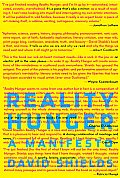 Reality Hunger: A Manifesto
Reality Hunger: A Manifesto has three epigraphs: "Art is theft" (Picasso), "All great works of literature either dissolve a genre or invent one" (Walter Benjamin), and "When we are not sure, we are alive" (Graham Greene). Since the entire book can be spied in these epigraphs and in their relationship to one another, I'll try to unpack them.
"Art is theft."
The book is awash in conscious, self-conscious, conspicuous appropriation. The mimetic function is replaced by manipulation of the original. Art is a conversation between and among artists; it's not a patent office. The citation of sources belongs to the realms of journalism and scholarship, not art. Citation flattens, domesticates, denudes the work of its power, its art, its danger. Who owns the words? Who owns the music and the rest of our culture? We do — all of us — though not all of us know it yet. Reality can't be copyrighted. In the back of the book appears an appendix identifying the book's sources, to comply with the publisher's legal obligations, but until then I'm inviting/daring the reader to identify the "stolen" material and see how I've used/exploited it to make a new work of art. The history of art is the history of artists appropriating other artists; Reality Hunger makes that process of appropriation explicit and asks us to think in new ways about quotation and appropriation and copyright and "plagiarism." As I say at the beginning of the Appendix, "The book contains hundreds of quotations that go unacknowledged in the body of the text. I'm trying to regain a freedom that writers from Montaigne to Burroughs took for granted and that that we have lost. Your uncertainty about whose words you've just read is not a bug but a feature."
"All great works of literature either dissolve a genre or invent one."
Genre is a minimum-security prison. Every work should find its own form; how many, though, as Geoffrey O'Brien asks, really do? Reality Hunger weds the question of appropriation to the question of authorial ambiguity and generic slippage. This technique shadows the entire book. Most readers will spot only a handful of the most well-known quotations, suspect that a lot of the paragraphs are quotations (even when they can't quite place them), and come to regard the first-person singular whenever they meet it as a floating, umbrella self, sheltering simultaneously one voice ("my own") and multiple voices. The possibility that every word in the book might be quotation and not "original" to the "author" should arise. This continuous uncertainty is meant to be unsettling, making the reader feel on his or her pulse the dubiety of the first-person pronoun; it's me (you thought it was); no, it's not, it's Sonny Rollins; no, in an important sense, it's neither of us; it's both of us; it's all of us. My favorite readers of the book aren't going to be quote-spotters but those who relish the ambiguous authorship of the text.
For the whole argument of the book is to put reality within quadruple quotation marks. Reality here isn't straightforward or easily accessed; it's slippery, evasive. Just as authorship is ambiguous, knowledge is dubious, and truth is unknown or at the very least relative. The crucial, yoking gesture of the book is to web ambiguity of the provenance of quotation with ambiguity of genre — fiction, nonfiction, the lure and blur of the real. Art, not to mention life, seems to happen primarily in liminal spaces, edited, quoted and quoted again, and recontextualized, re-placed, collaged, stitched together. The book argues this idea passionately; it also needs to embody it.
"When we are not sure, we are alive."
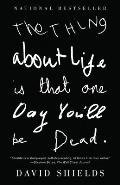 By unmooring genre and deactivating sources, I'm aiming to both argue for and embody doubt. Nonfiction, if it's not defined downward as mere journalism or memoir, is a way to foreground the essential philosophical questions — what is real? what is knowledge? what is memory? what's a self? Great nonfiction is genuinely destabilizing in a way that no other form is. It's congruent with the Fourth Law of Thermodynamics: Heisenberg's Uncertainty Principle: the perceiver by his very presence alters what he perceives. What I want to do is take the banality of the form (the literalness of "facts," "truth," "reality," the "self"), turn it inside out, and make nonfiction a staging area for the investigation of any claim of facts and truth — an extremely rich theater for investigating the most serious epistemological questions. The lyric essay is the literary form that gives the writer the best opportunity for rigorous investigation, because its theater is the world (the mind contemplating the world) and offers no consoling dream-world, no exit door.
By unmooring genre and deactivating sources, I'm aiming to both argue for and embody doubt. Nonfiction, if it's not defined downward as mere journalism or memoir, is a way to foreground the essential philosophical questions — what is real? what is knowledge? what is memory? what's a self? Great nonfiction is genuinely destabilizing in a way that no other form is. It's congruent with the Fourth Law of Thermodynamics: Heisenberg's Uncertainty Principle: the perceiver by his very presence alters what he perceives. What I want to do is take the banality of the form (the literalness of "facts," "truth," "reality," the "self"), turn it inside out, and make nonfiction a staging area for the investigation of any claim of facts and truth — an extremely rich theater for investigating the most serious epistemological questions. The lyric essay is the literary form that gives the writer the best opportunity for rigorous investigation, because its theater is the world (the mind contemplating the world) and offers no consoling dream-world, no exit door.
It's crucial, in my formulation, that both the writer and reader not be certain what the form is, that the work be allowed to go wherever it needs to go to penetrate its subject. My recent misreading of David Remnick's profile of Bill Clinton in The New Yorker as the first page of Miranda July's short story was more interesting to me than the story itself; the excitement several summers ago of the Lonelygirl15 phenomenon resided entirely during the period when you couldn't tell what it or she was. I want work to be equal to the complexity of experience, memory, and thought, not flattening it out with either linear narrative (traditional novel) or smooth recount (standard memoir).
For to think with any seriousness — as all the books listed below manifestly do — is to doubt. That is to say, thought is synonymous with doubt. To be alive is to be uncertain. I'll take doubt. A conversational dynamic is built into the essay form: the writer argues with himself; the writer argues with the reader. The essay enacts doubt; it embodies it as a genre. The very purpose of the genre is to provide a vehicle for essaying. The definition of "essay" is "trial," "experiment," "attempt."
When I was 17, I wanted a life consecrated to art. I imagined a wholly committed art-life: every gesture would be an aesthetic expression or response. That got old fast, because, unfortunately, life is filled with allergies, credit-card bills, tedious commutes, etc. Life is, in large part, rubbish. The beauty of "reality"-based art — art underwritten by "reality"-hunger — is that it's perfectly situated between life itself and (unattainable) "life as art." Everything in life, turned sideways, can look like — can be — art. Art suddenly looks and is more interesting, and life, astonishingly enough, starts to be livable.
Recommended reading:
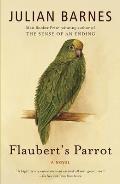 Henry Adams, The Education of Henry Adams
Henry Adams, The Education of Henry Adams
Renata Adler, Speedboat
James Agee, Let Us Now Praise Famous Men
Hilton Als, The Women
W.H. Auden, A Certain World
Augustine, Confessions
Nicholson Baker, U and I
James Baldwin, Notes of a Native Son
Julian Barnes, Flaubert's Parrot
Roland Barthes, S/Z
Jo Ann Beard, The Boys of My Youth
Samuel Beckett, Proust
Alan Bennett, Writing Home
Thomas Bernhard, Wittgenstein's Nephew
John Berryman, The Dream Songs
Grégoire Bouillier, The Mystery Guest
Jorge Luis Borges, Other Inquisitions: 1937-1952
Joe Brainard, I Remember
Richard Brautigan, Trout Fishing in America
Sophie Calle, Exquisite Pain
Albert Camus, The Fall
Anne Carson, Plainwater
Terry Castle, "My Heroin Christmas" (from The Professor and Other Writings)
John Cheever, Journals
Frank Conroy, Stop-Time: A Memoir
E.M. Cioran, The Temptation To Exist
Bernard Cooper, Maps to Anywhere
Cyril Connolly, The Unquiet Grave
John D'Agata, Halls of Fame
Alphonse Daudet, In the Land of Pain
Thomas DeQuincey, Confessions of an English Opium Eater
Joan Didion, "Sentimental Journeys" (from After Henry)
Annie Dillard, For the Time Being
Geoff Dyer, Out of Sheer Rage: Wrestling with D. H. Lawrence
Frederick Exley, A Fan's Notes
Brian Fawcett, Cambodia
F. Scott Fitzgerald, The Crack-Up
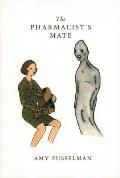 Amy Fusselman, The Pharmacist's Mate
Amy Fusselman, The Pharmacist's Mate
Eduardo Galeano, The Book of Embraces
Vivian Gornick, The End of the Novel of Love
Simon Gray, The Smoking Diaries
Spalding Gray, Morning, Noon and Night
John Haskell, I Am Not Jackson Pollock
Nathaniel Hawthorne, "Custom-House"
William James, The Varieties of Religious Experience
Franz Kafka, Letter to My Father
Wayne Koestenbaum, The Queen's Throat: Opera, Homosexuality, and the Mystery of Desire
Charles Lamb, Essays of Elia
D.H. Lawrence, Studies in Classic American Literature
Michel Leiris, Manhood
Michael Lesy, Wisconsin Death Trip
Jonathan Lethem, The Disappointment Artist: Essays
Sven Lindqvist, A History of Bombing
Rosemary Mahoney, Down the Nile
Rian Malan, My Traitor's Heart
Sarah Manguso, The Two Kinds of Decay: A Memoir
Herman Melville, Moby-Dick
Daniel Mendelsohn, The Elusive Embrace: Desire and the Riddle of Identity
Leonard Michaels, Shuffle
Michel de Montaigne, The Essays of Montaigne
Vladimir Nabokov, Nikolai Gogol
V.S. Naipaul, A Way in the World
Maggie Nelson, Bluets
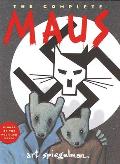 Friederich Nietzsche, Ecce Homo
Friederich Nietzsche, Ecce Homo
Blaise Pascal, Pensées
Don Patterson, Best Thought, Worst Thought
Fernando Pessoa, The Book of Disquiet
Jonathan Raban, For Love & Money
James Richardson, Vectors: Aphorisms & Ten-Second Essays
Alain Robbe-Grillet, Ghosts in the Mirror
François Le Rochefoucauld, Maxims
Jean-Jacques Rousseau, The Confessions
W.G. Sebald, The Emigrants
Lauren Slater, Lying: A Metaphorical Memoir
Art Spiegelman, Maus
Jean Stafford, A Mother in History
Stendahl, On Love
Jean Stein, Edie
Melanie Thernstrom, The Dead Girl
George W.S. Trow, Within the Context of No Context
D.J. Waldie, Holy Land: A Suburban Memoir
Joe Wenderoth, Letters to Wendy's
Geoffrey Wolff, The Duke of Deception